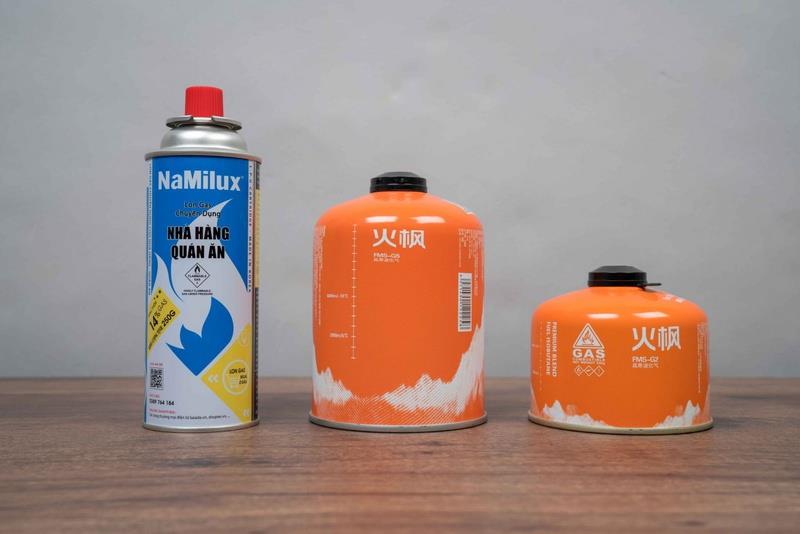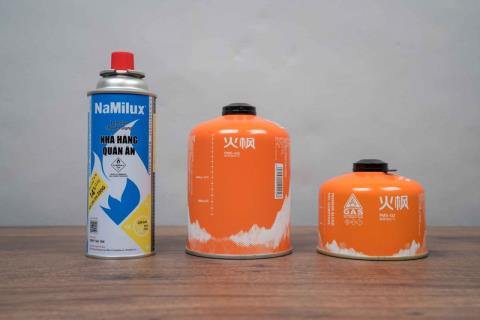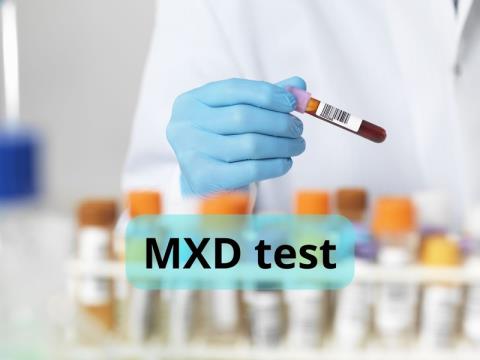Almost every home kitchen has a gas stove. However, the careless use of gas stoves can easily lead to many unpredictable consequences, especially in the case of gas poisoning.
If the family does not clean and maintain the gas stove carefully, it may cause gas leakage. When this gas enters the body through the airways, it will cause symptoms such as dizziness, headache, shortness of breath and nausea, even a very dangerous coma.
The nature of gas
Gas is a combustible gas mixture consisting of 85% methane, 10% ethane and a small part propane and butane,... The gas is colorless, odorless and very toxic when inhaled. However, in the production process, manufacturers have added odors to the gas so that users can recognize and avoid it.
In fact, gas is safer for the environment than coal and oil because it produces less greenhouse gases. The smell that the manufacturer mixes into the gas has a strong, unpleasant smell to identify gas leaks and handle it in time.
When a gas leak occurs, you will recognize it by smelling a strong, unpleasant smell
Effects of gas poisoning
The culprit that causes gas poisoning is CO. At low concentrations, it disperses in the air, when inhaled, it quickly enters the bloodstream. In a very short time, it will absorb the red blood cells in the body, causing the oxygen content in the body to decrease, leading to the brain being deprived of oxygen .
When the gas is released, it is easy to smell its characteristic strong odor. If gas poisoning is mild, the patient will have symptoms of dizziness, headache, ringing in the ears, chest tightness and nausea. Severe poisoning, in addition to the above symptoms, there are also sweating, pale skin, unsteady steps, reduced vision, possible coma, unconsciousness, convulsions, convulsions and cyanosis.
First aid for people with gas poisoning
In the event of gas poisoning, the following steps must be taken quickly to provide emergency first aid to avoid the worst case scenario:
- Take a deep breath, hold your breath and then run into the room, quickly close the gas cylinder valve and open all the windows to let the air out to reduce the gas concentration and clean the air.
- Quickly run out to get some air, then continue into the room to take the poisoned person out. Check the victim's pulse and breathing. If the victim is out of pulse and stops breathing, you need to urgently perform artificial respiration to restore the functional state of the heart and lungs.
- If the victim is awake, they should lie down quietly to rest, avoid limb movements that reduce oxygen and unnecessary energy.
- After giving first aid, quickly bring the poisoned person to the nearest medical center or call an ambulance for timely emergency treatment.
- The rescuer must protect himself well by using a wet towel to cover his nose before entering the gas spill. It is strictly forbidden to use tobacco, open and close electrical switches or conduct acts that can generate sparks to avoid fire and explosion.
Gas poisoning makes you dizzy, nauseous, pale even fainting
How to treat CO . poisoning
To treat CO poisoning, first remove the victim from the CO contaminated area or open the doors to let the toxic gas out. Turn off the gas stove, then move the victim to a well-ventilated area to improve the oxygen level in the body. In severe cases, the victim has weak breathing or stops breathing, artificial respiration is required. Then transport the victim to the nearest medical facility.
Some of the methods used in hospitals to treat CO2 asphyxiation are as follows:
- Purified Oxygen: This therapy increases the amount of dissolved oxygen in the blood and helps deliver oxygen to organs or tissues.
- Hyperbaric Oxygen Chamber Therapy: This therapy uses a completely enclosed chamber filled with pure oxygen at high pressure or a concentration 2-3 times the patient's. This speeds up the replacement of CO with oxygen in the blood.
How to install gas safely
Choose to buy a gas stove
Buy and use gas stoves, gas cylinders and genuine gas stove accessories. Use gas cylinders with clear labels, clear origins, and genuine seals printed on clear, non-translucent, non-wrinkled gas cylinders. Do not use rusty gas cylinders or loose shut-off valves.
How to install a gas stove
- Place the gas cylinder upright, do not store gas cylinders in the house.
- The gas tank is placed lower than the stove for good circulation and to avoid gas accumulation at the bottom of the tank when it is almost used up.
- Gas cylinders should be kept away from stoves or sources of heat and sparks about 1.5m.
- Gas cylinders should not be placed in a closed cabinet because the smell of leaking gas cannot be detected. Gas is heavy, so when it spills, it will spread to the ground, so the gas tank must be airy.
- During the process of installing gas cylinders, employees should pay attention to monitor whether they follow the correct procedure, check the flame, turn off the stove to see if the valve is closed.
Checking daily
Check gas cylinders every 6 months to 1 year. About 2-3 years it is recommended to replace the gas line and 5 years for the pressure regulator valve. Do not use gas stoves that are too old, rust will clog gas pipes and gas valves, leading to gas leaks causing fire and explosion.
How to prevent CO . poisoning
- Keep away from operating machinery.
- Choose to buy a gas stove from a reputable, safe brand.
- Ask a technician to install a gas stove.
- The kitchen space needs to be ventilated, so that gas can circulate out.
- Clean and maintain the gas stove periodically.
- Install gas leak detectors.
- Do not use gas stoves or stoves for heating because CO builds up in the house.
- Do not burn coal in a closed room.
- Do not use generators in homes or warehouses, small basements, near residences.
- In addition, if you are worried about gas poisoning, you can consider using an induction cooker to ensure safety.
 Use new, genuine gas stoves and gas cylinders that do not rust to ensure safety
Use new, genuine gas stoves and gas cylinders that do not rust to ensure safety
Gas stove is an extremely useful kitchen appliance that makes cooking easier for housewives. However, to use a gas stove safely without causing fire, explosion, gas poisoning , you should buy it at a reputable kitchen seller. Do not use too old gas cylinders, must regularly check the pipeline, gas valve to limit possible damage.


 Use new, genuine gas stoves and gas cylinders that do not rust to ensure safety
Use new, genuine gas stoves and gas cylinders that do not rust to ensure safety






